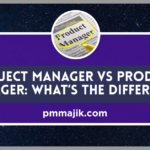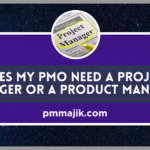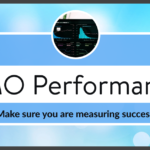The function of a Product Manager has grown in importance within project management. A product manager’s strategic engagement can make a big difference, even as the business(es) navigate the challenges of delivering successful projects and bringing products to the market. Below are five significant reasons why project success requires a product manager.
Note:
The ones we mentioned here are not the only reasons, but the ones that are considered the most prevalent.
Top 5 Reasons You Need a Product Manager
1. Vision and Direction of Strategy
A product manager takes a strategic approach to the problem. While traditional product managers may place more emphasis on scheduling and resource allocation, product managers have a comprehensive understanding of the market, customer needs, and the overall business environment. A product manager ensures that every part of the ongoing project contributes to the company’s long-term prospects by letting it rhyme with the company’s strategic goals.
2. Risk Mitigation and Adaptability
Every project involves some degree of risk. A skilled product manager can effectively mitigate risks by identifying potential obstacles early in the project’s lifecycle. Their proactive problem-solving style reduces the likelihood of major setbacks. A product manager is flexible – before modifying the project, a good product manager takes into account current market situations and makes modifications to that effect. They are also expected to take into account their present business environment, customer preferences, and a host of other relevant factors.
3. Customer-Centric Approach
One of the main responsibilities of a product manager is to advocate for the customer. They represent the client within the project team, ensuring that the outcome meets and exceeds the client’s expectations. A good product manager ensures that whatever solution the company creates for a particular project benefits the targeted customer base. This can be achieved by engaging in market surveys, gathering customer feedback, and understanding the user’s “pain points.” You have to understand that it takes only a customer-friendly approach to create products customers can enjoy.
4. Cross-Functional Collaboration
Projects often involve multiple teams with different skill sets, from development and design to marketing and sales. These cross-functional teams depend on the product manager to act as their glue. They can help act as a bridge between technical and non-technical stakeholders to guarantee that all parties agree with the project’s objectives. This combination of approaches helps facilitate strong leads and establish better communication to ensure better project execution.
5. Ownership and Accountability
Any business with a potential for a prosperous future needs a product manager, because of their ability to assume responsibility for the project from inception to completion. A strong sense of accountability is engrained in this sense of ownership. Unlike a project manager who might focus on the execution phase, a product manager is involved at every stage of the product’s lifecycle. They assume responsibility for the project’s success, overseeing not only the development stages but also the launch of the product onto the market and any follow-up evaluations.
Conclusion
The role of a product manager is becoming increasingly important in the current project management environment. Henry Gantt, in one of his theories, asserted that time and resource management is a necessary skill for product managers and project management.
They are crucial to the success of any project because of their ability to reduce risk, focus on the needs of the customer, foster collaboration, have a strong sense of ownership, and have a strategic vision. Lastly, by making use of a product manager’s unique skills and perspectives, businesses can ensure that their projects not only achieve internal objectives but also connect with customers and create long-lasting value.






